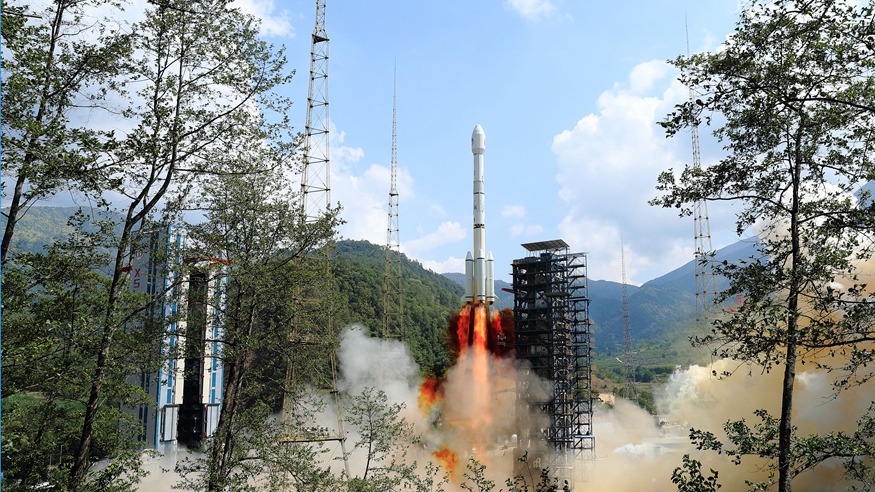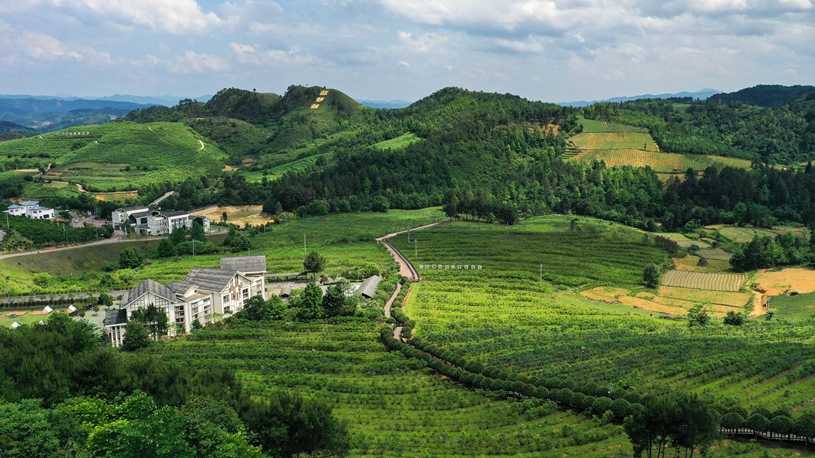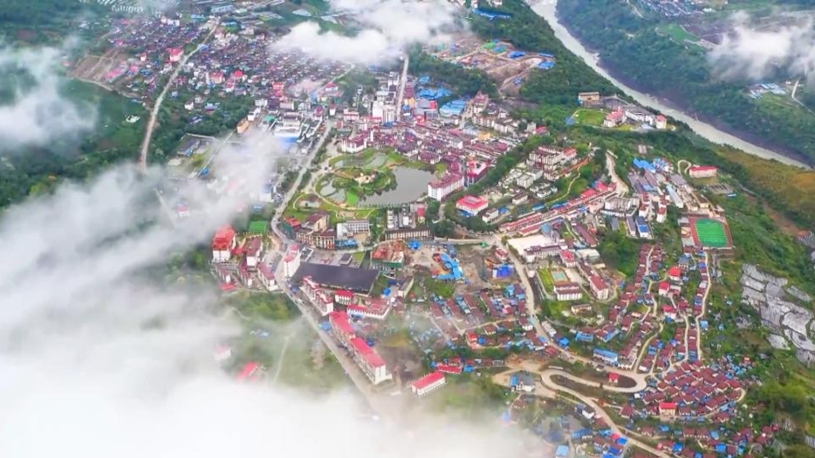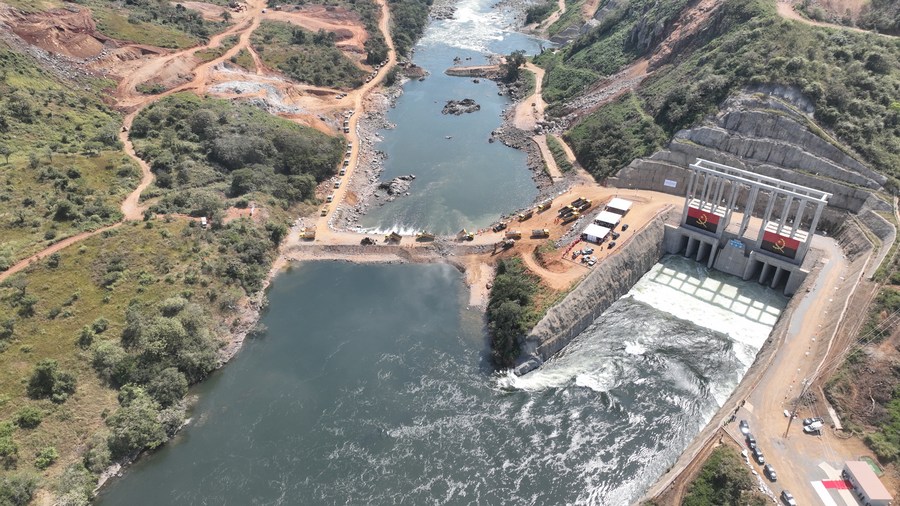
This aerial photo taken on May 20, 2023, shows the diversion ceremony site of Caculo-Cabaca Hydropower Station in Cuanza Norte province, Angola. (China Gezhouba Group Company Limited/Handout via Xinhua)
Angolan President Joao Lourenco has spoken highly of the socioeconomic contribution of the Chinese-built Caculo-Cabaca Hydropower Station, saying that the station would bring significant benefits in terms of energy supply and improved well-being for the Angolan people.
LUANDA, May 22 (Xinhua) -- Angolan President Joao Lourenco has spoken highly of the socioeconomic contribution of the Chinese-built Caculo-Cabaca Hydropower Station, saying that the station would bring significant benefits in terms of energy supply and improved well-being for the Angolan people.
Lourenco made these remarks Saturday in the country's north-central province of Cuanza Norte while attending a ceremony for the temporary diversion of the Cuanza River, one of Angola's longest rivers, which marked the beginning of the main construction phase of the hydroelectric project. It will become Angola's largest hydroelectric plant and the third largest in Africa on completion.
During an interview with Xinhua, Angola's Minister of Energy and Water Joao Baptista Borges highlighted the partnerships between Angola and China in promoting the use of renewable energy in Angola. "Over the past decade, we have collaborated with several Chinese companies in the energy and water sector, and today we have achieved satisfactory results."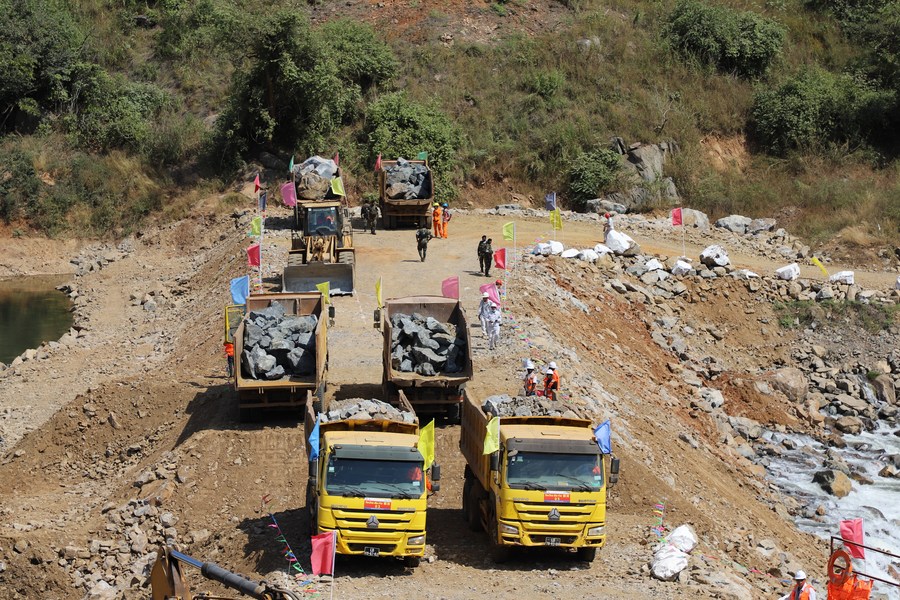
This photo taken on May 20, 2023, shows the diversion ceremony site of Caculo-Cabaca Hydropower Station in Cuanza Norte province, Angola. (Xinhua/Lyu Chengcheng)
According to a statement from China Gezhouba Group Company Limited (CGGC), the contractor for the Caculo-Cabaca project, the hydroelectric plant is located in the middle section of the Cuanza River. It is designed to have an installed capacity of 2,172 megawatts. On completion, it is projected to generate an average of 8,566 gigawatt-hours of electricity a year, reducing greenhouse gas emissions by approximately 7.2 million tonnes annually. Additionally, the dam will serve functions such as water flow regulation and flood prevention.
Currently, the project employs more than 2,500 workers, of whom more than 81 percent are local. The connection of the first generator to the power grid is scheduled to be completed by 2026, as per a video displayed at the event. ■


